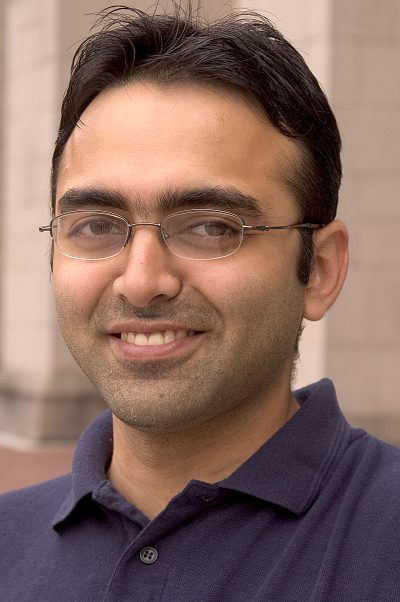July 7, 2005
Guest commentary: Even in Seattle, prejudice lives on
My years in the United States have largely been wonderful. This is especially true within the University of Washington, where the atmosphere can be exhilarating. However, outside the University, both my friends (especially my Indian friends) and I have been victims of horrible forms of racial abuse.
Though Seattle prides itself on being tolerant and liberal (which it usually is), and though most of Seattle’s residents live without prejudice, there remain a number of people who continue to hate. Sometimes, this hatred even spills onto this wonderful campus. Here are three separate instances that are typical of such incidents that we have faced.
It was about 11 p.m. on Tuesday, June 14, and I was walking back home from a friend’s house. I was at the intersection of N.E. 45th Street and 17th Avenue N.E. (an entrance to the University). It’s dark, and the street is not crowded. I cross the street and continue to walk. I hear a voice.
“Boy!”
Surprised, I turn back.
“Yeah, you boy!” he yells from his rusty old Ford pickup truck, stopped at the traffic signal. He’s obviously drunk, shouldn’t be driving, and does not look like he’s a part of this campus.
“This is for you, you f*****g jihadi.”
The beer bottle lands 6 feet from where I stand, somewhat paralyzed, while he speeds away.
I turn back and walk away briskly. I am filled with feelings of fear (terror?), contempt, confusion and anger.
It’s 7:30 p.m., on Tuesday, June 18. I am on the scenic campus of the University of Washington, walking back home after an evening workout at the gym. I’m having a conversation with a friend on my cellphone. A man walks by me. He looks at least as old as my 64-year-old father. He also looks like one of Seattle’s many homeless people, and what he is doing inside campus, I cannot imagine. I hear him shouting, and I ignore it.
Then I hear it again.
“You brown b*****d, stop talking on the phone.”
Startled, and again against my will, I look back.
“Speak in English, boy. Speak in f*****g English. You think you own this place? Shut the f**k up and speak in English.”
Here’s this old man, hopping mad, standing on Stevens Way and abusing me. Two students walk by, staring in horror at this man screaming abuse. They see him, hasten their step and walk away.
Almost exactly a year ago, on the Fourth of July, I was with my friends (fellow graduate students here at the University) down at Gasworks Park, waiting for the Independence Day fireworks. I decide to take a little walk, leaving my friends behind. I walk around, watching people celebrating and enjoying themselves, as they should. Then I hear some shouting from a bunch of boys.
They were probably high school kids. They didn’t look much older than 16 or 17.
“Hey you. Yeah, you, Mohammed!”
I look at them, startled. They were standing there sneering at me.
“Where did you plant those bombs? Waiting for them to explode?”
I am paralyzed in shock. A friend of mine shows up (he’s white and American), and asks me what was going on. The hecklers turn away and busy themselves in pretended conversation.
I’m not an Arab. I’m not even Muslim. But why should it matter, what I am?
I would like to go again to Gasworks Park this Fourth of July, and spend the evening there with my wife and my friends, celebrating. But I’m scared. Nothing happens every day, but I do not want anything to happen on Independence Day. I do not want to hear the rousing chorus “…the land of the free, and the home of the brave” and believe that those words are hollow.
My years at the University of Washington have been among the most fulfilling in my life. This is a truly magnificent multicultural, multi-racial University, where people come to receive a fine education, or participate in what is among the best research anywhere in the world. Every person I have met, faculty, staff or student, shares my pride in this University and its values. Every person here values and respects diversity, different cultures, languages, thoughts, traditions and actions. This is exemplified by organizations like the Foundation for International Understanding through Students, and the huge turnout for FIUTS events shows how much we here care about this freedom.
But this is not necessarily always reflected in the beautiful city we live in. As the flagship University of the State of Washington, it is perhaps a greater duty of the University to do everything it can to spread these values beyond its sylvan campus, and in this state.
Sunil Laxman is doctoral student in Pharmacology and a native of India.



